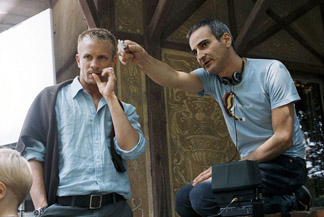|
|
Sole Criterion: Summer HoursBy Brett Ballard-BeachMay 10, 2012
In an early scene both brusque and discomfiting she has Frederic accompany her through the house as she rattles off the various items of worth (a plaster cast, some panels, her uncle’s sketchbooks, a final drawing, a pair of paintings) and what she expects him to do with them. Assayas mines the universal unease of any adult child talking with a parent about what will happen he or she is no longer there. But he adds a twist in that it is Frederic who (wrongly) assumes that his mother means for him and his brother and sister to maintain everything as it is, to pass on to their children Helene has no such illusions. In a statement that might serve as the film’s unconventional thesis, she lays out in precise terms exactly how she sees her legacy in perspective of the larger picture: “They’re young. It’s their childhood they love. But when they’re older, they’ll have better things to do than deal with bric-a-brac from another era.” Keep that thought in mind. I will return to it shortly. Assayas has said that Summer Hours, which began as a short film, a commission for the Musee d’Orsay, is meant to be more about the progress of the objects owned by Helene, from private (home) to public (museum display). Being the creator of the film, he is allowed his opinion, but I tend to disregard such statements from him as much as I do, say, Peter Greenaway’s constant carping about actors being a necessary evil, and wishing he could do away with them entirely. If Assayas’ intent is as stated, he could have made the film significantly more clinical and less human, cast less interesting actors for the audience to (not) follow, and veered off toward a more documentary-like or non-fiction approach. But he didn’t.
|

|
|
|

|
Friday, May 3, 2024
© 2024 Box Office Prophets, a division of One Of Us, Inc.


